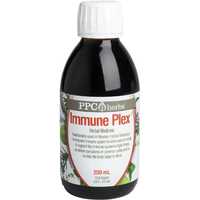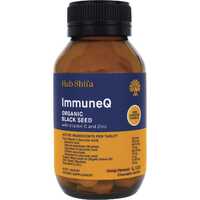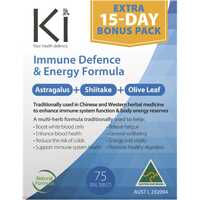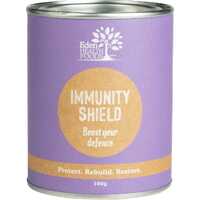The human immune system is one of our greatest achievements. Throughout a long and challenging evolution, it has protected us from external bacteria and viruses, and prevented numerous disease-causing cell changes. Lots of factors influence the immune system, from old age and environmental toxins to obesity, stress, and sleep. The foods we eat have a profound effect on the development and function of the immune system, with access to nutrients essential for the production of immune cells and antibodies. Each stage of the immune response depends on micronutrients, all of which are readily available in fresh foods and supplements.
Let's take a look at the immune system and how it works, and review the best things to eat to keep yourself protected.
What is Your Immune System?
The immune system is not a single organ or part of your body. In fact, it's not really a thing at all. Instead, your immune system is a network of biological processes that have evolved over time to provide protection from disease. Different parts of the immune system do different things, with some immune processes providing detection mechanisms and others specialising in response and removal.
- From a physical perspective, your immune system consists of white blood cells, antibodies, bone marrow, spleen, thymus, lymphatic system, and complement system.
- In terms of processes, immune defence involves layered systems of increasing specificity, from robust physical barriers to tailored recognition, adaptive response, and controlled elimination.
The human immune system is split into two separate yet related subsystems: the innate immune system and the adaptive immune system. The former is the result of evolution, and it includes preconfigured responses to a variety of external and internal threats. The latter is the result of exposure, and it includes learned responses to things encountered over a single lifetime. Both subsystems use organs, molecules, and cells to perform their functions, and both involve physiological regulation and interaction with other biological systems.
How Does the Immune System Work?
The immune system plays an essential role throughout the body. As your primary system of defence, it protects you from harmful substances, environmental pathogens, and unwanted cell changes. The immune system is activated by all of these things, which are given the collective name "antigens." Without an immune system, you would have no way to protect yourself against harmful things entering your body or harmful changes occurring inside your body.
If your immune system is working properly, it is virtually invisible. While occasional coughs and sneezes remind you of its existence, most of the work it performs happens behind the surface. If your immune system is overwhelmed or stops working properly, however, it's pretty much impossible to ignore. This can happen for many reasons, from internal weakness and disease to aggressive germs and pollutants.
The immune system fulfils the following tasks:
- Prevents pathogens (bacteria, viruses, parasites, fungi) from entering the body
- Produces pathogen-destroying chemicals
- Removes pathogens from the body
- Identifies and neutralises harmful environmental substances
- Fights unwanted and potentially disease-causing changes in the body
When antigens enter the body or get recognised for the first time, they attach to special receptors on immune system cells. A series of processes are then triggered, with the immune system using data from its memory bank or storing data to create a new record. While this process is not directly related to our digestive system, the foods we eat help to energise, regulate, and repair parts of the body essential for the immune response.
Best Foods for The Immune System
A large variety of foods help to fuel and regulate the immune system. While individual foods don't provide direct links to immunity, and the word "boost" can be a little hyped at times, many foods help to fuel the growth and function of immune cells. Certain foods are much better than others in this regard, however, and the following list is a great place to start:
Citrus fruits
From oranges and lemons to tangerines and mandarins, citrus is full of beneficial immune-boosting juices. It's all down to vitamin C, which helps to increase the production of white blood cells. As a key part of your lymphatic system, white blood cells help to identify and attack microbes in your body. While the impact of vitamin C is not completely understood, this powerful antioxidant and anti-inflammatory has been found to enhance various immune cell functions. Red capsicums are another fantastic source of vitamin C, as are broccoli, tomatoes, papaya, and kale.
Blueberries
Delicious blueberries are also great for the immune system, mostly due to flavonoids called anthocyanins. These powerful compounds have a range of antioxidant properties, and they play an important role in the context of immune system defence. These natural flavonoids have a number of antiviral and antibacterial properties, and they've been found to alleviate various systemic diseases. Other foods rich in anthocyanins include strawberries, grapes, mulberries, black beans, and purple sweet potatoes.
Turmeric
Turmeric is a colourful spice that's widely used in cooking and traditional medicine. The benefits of this yellow spice are due to the compound curcumin, which has been found to improve the immune response. Curcumin can help with a range of oxidative and inflammatory conditions, along with metabolic syndrome, arthritis, anxiety, and hyperlipidemia. It may also help in the management of exercise-induced inflammation and muscle soreness, and it also provides benefits for people without diagnosed health conditions. Curcumin has shown a significant ability to modulate the immune response, but further work is needed to measure its precise impact on both the innate and adaptive systems.
Green vegetables
Dark leafy greens and cruciferous vegetables play a key role in regulating the immune system. They influence important chemical messengers, with these compounds encouraging immune cells to function properly. Underneath your body's first barrier, the skin, there is a network of immune cells. Certain foods play a role in regulating barrier immunity, from directly below the skin all the way to the gut. Researchers recently discovered a link between external stimuli and specialised immune cell populations, with phytonutrients derived from cruciferous vegetables a great way to sustain the immune system and control bacterial colonisation.
Dark leafy greens like spinach and kale are a great source of fibre, folate, iron, and calcium, and they also have lots of vitamins C and K. All of these compounds help to fuel and regulate the immune system. Cruciferous vegetables are also great, and broccoli deserves special mention. Packed with vitamins A, C, and E, and containing lots of antioxidants, broccoli is one of the healthiest things you can eat for your immune system.
Garlic
Garlic is loved for its great taste and health-boosting properties. It's found in almost every global cuisine, and it has been used for centuries to help fight infections and disease. The immune-enhancing properties of garlic come mostly from a heavy concentration of allicin and other sulphur-containing compounds. These compounds help to modulate cytokine profiles and maintain health by stimulating immune cells. Garlic stimulates many cell types, including macrophages, lymphocytes, dendritic cells, eosinophils, and the very-well-named natural killer (NK) cells. Garlic may contribute to the treatment and prevention of conditions as diverse as obesity, metabolic syndrome, gastric ulcer, cardiovascular disorders, and even cancer.
Best Supplements for The Immune System
Along with fresh healthy foods, certain supplements help to improve immune system function. While eating good food is essential, and supplements should never be relied upon, they can be a great addition to an already healthy diet. Popular supplements for the immune system include vitamins C and D, zinc, iron, selenium, and folate. These nutritional supplements can be incredibly beneficial, and they're also widely affordable and easy to consume.
Some superfood products can also be put in this category, as they pack a powerful nutritional punch in a relatively small package. There are lots of great superfood products on the market, with the developed world learning lessons from ancient cultures as it integrates traditional ingredients with lessons from modern science. Hemp seed oil, spirulina, acai berries, and chia seeds all contain a wide range of beneficial nutrients, and they're easy to integrate with your regular diet.
If you want to give your immune system the best chance of working properly, daily nutrition is the obvious place to start. While it's also important to think about sleeping patterns, exercise habits, and mental health, what you consume has a very real impact on your body's defence system.
Healthy Being stocks lots of great foods and supplements for your immune system. We have a range of great products available at low prices, with everything easy to find and purchase at our online store!


 Certified Organic
Certified Organic Vegan Friendly
Vegan Friendly  Vegetarian
Vegetarian Organic Ingredients
Organic Ingredients Dairy Free
Dairy Free Gluten Free
Gluten Free Keto Friendly
Keto Friendly

































